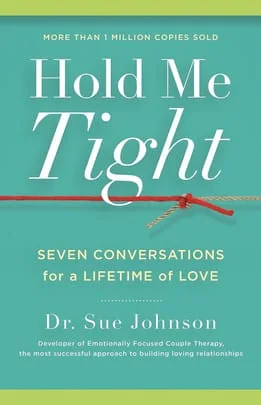o Parents of chronically ill children
o Partners from different cultures and socioeconomic groups
o Older couples
o Couples suffering from chronic illness
o Couples in which at least one partner is coping with depression and anxiety (including PTSD).
Common Challenges Addressed by EFT
Emotionally Focused Therapy (EFT) is a highly effective approach for couples facing a variety of challenges in their relationship. By focusing on the emotional bond between partners and how to strengthen it, EFT provides a pathway to healing and deeper connection. Here are some common challenges that EFT can help address:
- Communication Breakdowns: One of the most common issues couples face is difficulty in communicating effectively. EFT helps partners understand and express their underlying emotions, leading to more open and constructive communication.
- Conflict Resolution: EFT teaches couples how to navigate conflicts in a way that strengthens their relationship, rather than eroding it. By focusing on emotional needs and responses, couples learn to approach conflicts with empathy and understanding.
- Infidelity and Trust Issues: Recovering from infidelity is a profound challenge for any relationship. EFT addresses the root emotional wounds caused by breaches of trust, helping couples rebuild a secure, honest, and loving connection.
- Emotional Distance: For couples feeling disconnected or emotionally distant, EFT can help rekindle intimacy and closeness. It encourages partners to express their needs and vulnerabilities, fostering a stronger emotional bond.
- Premarital Counseling: Couples looking to build a strong foundation for their marriage can benefit from EFT by addressing potential emotional issues and enhancing their connection before they arise.
- Adjusting to Life Changes: Significant life events such as the birth of a child, job loss, or relocation can strain a relationship. EFT helps couples navigate these transitions by supporting each other emotionally.
- Sexual Dissatisfaction: EFT can improve sexual intimacy and satisfaction by addressing the emotional aspects of a couple's sexual relationship, helping them to communicate their desires and concerns more openly.
- Parenting Challenges: Parenting can put a strain on the couple's relationship. EFT helps parents work together more effectively by improving their communication and emotional support for each other.
- Grief and Loss: Coping with the loss of a loved one can be devastating. EFT supports couples in processing their grief together, providing emotional support and understanding during difficult times.
- Anxiety and Depression: When one or both partners are dealing with anxiety or depression, EFT can help by addressing the impact of these conditions on the relationship and helping partners support each other emotionally.
By addressing these and other challenges, EFT can help couples not only resolve their immediate issues but also build a stronger, more resilient relationship for the future.
FAQ: Emotionally Focused Therapy for Couples
What is Emotionally Focused Therapy (EFT)? EFT is a structured approach to couples therapy formulated in the 1980s by Drs. Susan Johnson and Les Greenberg. It focuses on creating and strengthening emotional bonds between partners by understanding and changing their emotional responses. The goal is to foster a secure, resilient relationship through open, honest communication and emotional connection.
How long does EFT take? EFT is considered a brief therapy model, typically ranging from 8 to 20 sessions. However, the duration can vary based on the couple's unique circumstances, the specific challenges they face, and their progress throughout the therapy.
Is EFT effective for all couples? EFT has been shown to be effective for a wide range of couples, including those facing issues like communication breakdowns, infidelity, depression, and anxiety, among others. It is versatile and can be adapted to meet the diverse needs and situations of different relationships.
What can we expect in an EFT session? In EFT sessions, therapists guide couples through an exploration of their emotional experiences and patterns of interaction. Couples learn to identify and express their needs and fears within the relationship, understand their partner's emotional cues, and respond in supportive and healing ways.
How do we prepare for EFT sessions? Preparation for EFT involves being open to exploring your emotional experiences and how they affect your relationship. It can be helpful to reflect on your relationship goals and the issues you hope to address through therapy. Being ready to engage honestly and openly with your partner and the therapist is key.
Does EFT address individual issues like anxiety or depression? While EFT is focused on the relationship, it can also positively affect individual issues such as anxiety, depression, and stress. By improving emotional support and connection within the relationship, EFT can help individuals cope more effectively with their personal challenges.
Is EFT covered by insurance? Coverage for EFT varies by insurance provider and plan. It's important to check with your insurance company to understand what mental health services are covered under your policy. Some therapists offer sliding scale fees or payment plans to help make therapy more accessible.
Can EFT be done online? Yes, many therapists offer EFT sessions online, providing flexibility for couples who cannot attend in person due to geographical distance, scheduling conflicts, or other reasons. Online therapy can be just as effective as in-person sessions when conducted in a private, secure environment.
What if my partner is hesitant to try EFT? It's not uncommon for one partner to be unsure about starting therapy. Encourage open dialogue about their concerns and hesitations. Sharing information about EFT and its benefits, or even attending an initial session to learn more, can help alleviate apprehensions.
How do we start EFT? To begin EFT, you can contact a qualified therapist trained in Emotionally Focused Therapy. Many therapists offer initial consultations to discuss your needs and how EFT can help. Visit our website to explore therapist profiles and schedule an appointment directly through our online booking platform.
By addressing these FAQs, we aim to provide clear, helpful information for couples considering EFT to improve their relationship, fostering a deeper understanding and comfort with the therapy process.
Resources for Further Learning on Emotionally Focused Therapy for Couples
Exploring Emotionally Focused Therapy (EFT) can be a transformative journey not just within the therapy room but also through self-guided learning. For those interested in deepening their understanding of EFT and how it can enhance their relationship, we recommend the following resources. These books and materials are designed for clients wishing to explore the principles of EFT at their own pace.
1. "Hold Me Tight: Seven Conversations for a Lifetime of Love" by Dr. Sue Johnson

2. "Love Sense: The Revolutionary New Science of Romantic Relationships" by Dr. Sue Johnson
In "Love Sense," Dr. Johnson explains the science of love, debunking myths about romance, and offering insights into how a strong, loving relationship can improve overall happiness and well-being. The book lays out practical strategies for strengthening bonds and offers hope for relationships in distress.
3. "The Practice of Emotionally Focused Couple Therapy: Creating Connection" by Dr. Sue Johnson
While primarily aimed at clinicians, this book can also offer clients a deeper understanding of the EFT process and its theoretical underpinnings. For those interested in the 'how' and 'why' behind the therapy, it can be an enlightening read.
4. "Emotionally Focused Couple Therapy for Dummies" by Brent Bradley and James Furrow
A part of the popular "For Dummies" series, this book breaks down the principles of EFT into accessible language and practical steps. It's an excellent resource for couples looking to apply EFT concepts to their relationship without feeling overwhelmed by clinical jargon.
5. Online Resources and Videos
- Dr. Sue Johnson’s YouTube Channel: Features a variety of videos with Dr. Johnson discussing EFT, providing tips for couples, and explaining the science of attachment and bonding.
- The International Centre for Excellence in Emotionally Focused Therapy (ICEEFT): Offers articles, research findings, and additional resources for couples interested in EFT.
By engaging with these resources, couples can gain a richer understanding of their relationships and the powerful role emotions play in creating and maintaining bonds. Whether you're just beginning your journey with EFT or looking to supplement your therapy sessions, these books and materials offer valuable insights and guidance.
Many of our therapists' graduate degrees are in Marriage and Family Therapy and have done post-graduate training in Emotionally Focused Therapy. Book an EFT appointment for you and your partner online today.

